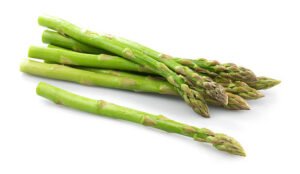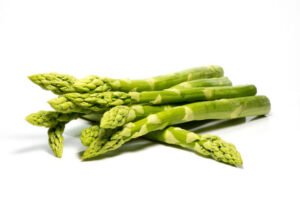Asparagus, a perennial flowering plant renowned for its delicate taste and tender texture, has been celebrated not only for its culinary versatility but also for its numerous health benefits. From ancient civilizations to modern nutritional science, asparagus has earned its place as a nutritional powerhouse packed with essential vitamins, minerals, and antioxidants.
 Antioxidant Properties
Antioxidant Properties
One of the most notable health benefits of asparagus lies in its potent antioxidant properties. It contains various antioxidants, including flavonoids, polyphenols, and glutathione, which help neutralize harmful free radicals in the body. These antioxidants play a crucial role in reducing oxidative stress and inflammation, thereby lowering the risk of chronic diseases such as heart disease, cancer, and neurodegenerative disorders.
Furthermore, what sets asparagus apart is its unique combination of antioxidants, each contributing to its potent health-promoting properties. Flavonoids, such as quercetin and kaempferol, are abundant in asparagus and are known for their anti-inflammatory and immune-boosting effects. These compounds not only scavenge free radicals but also modulate immune responses, enhancing the body’s ability to fight off infections and diseases.
Polyphenols found in asparagus, including ferulic acid and rutin, contribute to its antioxidant arsenal, offering additional protection against oxidative stress and cellular damage. These polyphenolic compounds exhibit anti-cancer properties by inhibiting the growth of cancer cells and reducing the risk of tumor development. Moreover, they support cardiovascular health by improving blood vessel function and reducing the risk of atherosclerosis and heart disease.
In addition to flavonoids and polyphenols, asparagus is rich in glutathione, a powerful antioxidant and detoxifying agent that plays a critical role in cellular defense mechanisms. Glutathione helps regenerate other antioxidants, such as vitamins C and E, maximizing their effectiveness in combating oxidative stress. Its presence in asparagus enhances its ability to combat inflammation, support liver function, and promote overall health and well-being.
 Digestive Health
Digestive Health
Asparagus is an excellent source of dietary fiber, both soluble and insoluble, which promotes digestive health. Fiber aids in regulating bowel movements, preventing constipation, and maintaining a healthy digestive tract. Furthermore, the prebiotic properties of asparagus fiber support the growth of beneficial gut bacteria, contributing to improved gut health and overall well-being.
One distinctive feature of asparagus fiber is its ability to support a healthy balance of gut bacteria, also known as the gut microbiota. The prebiotic properties of asparagus fiber provide nourishment for beneficial bacteria in the gut, such as Bifidobacteria and Lactobacilli. These beneficial bacteria play a crucial role in maintaining intestinal health by fermenting fiber and producing short-chain fatty acids (SCFAs), which help nourish the cells lining the colon and support overall digestive function.
Furthermore, the unique composition of asparagus fiber includes oligofructose, a type of prebiotic fiber that selectively stimulates the growth of beneficial bacteria while inhibiting the growth of harmful bacteria in the gut. This selective fermentation process contributes to a healthier gut environment and may help reduce the risk of digestive disorders such as irritable bowel syndrome (IBS) and inflammatory bowel disease (IBD).
Moreover, asparagus contains specific compounds known as saponins, which have been studied for their potential role in promoting digestive health. Saponins exhibit anti-inflammatory properties and may help protect the intestinal lining from damage, reducing the risk of gastrointestinal inflammation and improving overall gut function.
 Heart Health
Heart Health
Regular consumption of asparagus has been linked to improved heart health due to its high levels of potassium and folate. Potassium helps regulate blood pressure by counteracting the effects of sodium, thereby reducing the risk of hypertension and stroke. Folate, on the other hand, plays a vital role in regulating homocysteine levels, an amino acid associated with an increased risk of heart disease when elevated.
In addition to its potassium and folate content, asparagus possesses unique characteristics that contribute to its effectiveness in promoting heart health. Unlike many other vegetables, asparagus contains specific compounds known as saponins, which have been studied for their potential cardioprotective effects. These bioactive compounds have been shown to inhibit inflammation and reduce cholesterol levels, thereby lowering the risk of atherosclerosis and cardiovascular disease.
Furthermore, asparagus is rich in antioxidants, including vitamin C, vitamin E, and glutathione, which help protect the heart from oxidative stress and damage. Oxidative stress is a key contributor to the development of cardiovascular diseases, and the antioxidant properties of asparagus help mitigate this risk by neutralizing harmful free radicals and reducing inflammation in the cardiovascular system.
Moreover, the high fiber content of asparagus plays a crucial role in promoting heart health. Dietary fiber helps lower cholesterol levels by binding to bile acids in the digestive tract and promoting their excretion, thereby reducing the absorption of cholesterol into the bloodstream. Additionally, fiber helps maintain healthy blood sugar levels and promotes satiety, which can aid in weight management and reduce the risk of obesity-related heart conditions.
 Cognitive Function
Cognitive Function
Asparagus contains folate, a B vitamin essential for brain health and cognitive function. Adequate folate intake is associated with a lower risk of cognitive decline and age-related neurodegenerative diseases such as Alzheimer’s disease. Moreover, folate plays a crucial role in neurotransmitter synthesis, contributing to mood regulation and overall mental well-being.
In addition to its role in cognitive health, asparagus contains high levels of glutathione, a powerful antioxidant that supports detoxification and protects against oxidative damage in the brain. Glutathione plays a crucial role in maintaining the balance of neurotransmitters, such as dopamine and serotonin, which are essential for mood regulation and mental well-being. By promoting the synthesis and activity of these neurotransmitters, asparagus contributes to a positive mood and overall cognitive function.
Moreover, asparagus contains compounds known as saponins, which have been studied for their potential cognitive benefits. Saponins exhibit anti-inflammatory properties and may help protect against neurodegenerative diseases by reducing inflammation and oxidative stress in the brain. Research suggests that regular consumption of asparagus, rich in folate, antioxidants, and neuroprotective compounds, may offer significant cognitive benefits and support brain health throughout life.
 Cancer Prevention
Cancer Prevention
Several studies suggest that asparagus may possess anti-cancer properties, attributed to its rich antioxidant content and unique phytochemicals. Certain compounds found in asparagus have demonstrated anti-inflammatory and anti-tumor effects in preclinical studies, potentially inhibiting the growth and spread of cancer cells. However, further research is needed to elucidate the specific mechanisms and potential therapeutic applications in cancer prevention and treatment.
Additionally, asparagus contains high levels of glutathione, a powerful antioxidant that aids in detoxification and helps protect cells from oxidative damage, thereby reducing the risk of cancer development.
Furthermore, the unique combination of nutrients and phytochemicals found in asparagus may exert synergistic effects that enhance its anti-cancer potential. For example, studies have shown that the combination of folate and antioxidants in asparagus may help repair DNA damage and inhibit the proliferation of cancer cells. Additionally, the presence of specific compounds such as asparagusic acid, a sulfur-containing compound unique to asparagus, has been investigated for its potential anti-cancer properties, although further research is needed to fully elucidate its mechanisms of action.
 Weight Management
Weight Management
Asparagus is a nutrient-dense, low-calorie vegetable that can be beneficial for individuals looking to manage their weight. Its high fiber content promotes satiety, helping to curb appetite and reduce overall calorie intake. Additionally, asparagus is naturally low in fat and cholesterol, making it a smart choice for those aiming to maintain a healthy weight and support their weight loss goals.
Furthermore, asparagus boasts a unique combination of nutrients that contribute to its effectiveness in weight management. It is rich in vitamins and minerals such as vitamin B6, vitamin E, and potassium, which play essential roles in metabolism and energy production. Vitamin B6, for example, is involved in the metabolism of carbohydrates, fats, and proteins, helping the body utilize nutrients efficiently and maintain a healthy weight.
Moreover, asparagus contains a compound called asparaptine, which has been studied for its potential role in regulating blood sugar levels. By promoting stable blood sugar levels, asparagus can help prevent spikes in insulin secretion, which may contribute to fat storage and weight gain. This makes it a valuable addition to the diet for individuals aiming to manage their weight effectively.
Bone Health
Asparagus contains essential nutrients such as vitamin K, calcium, and phosphorus, which are crucial for maintaining strong and healthy bones. Vitamin K plays a key role in bone metabolism and helps improve calcium absorption, while calcium and phosphorus contribute to bone mineralization and density. Regular consumption of asparagus as part of a balanced diet can contribute to overall bone health and reduce the risk of osteoporosis and fractures.
Moreover, asparagus contains a unique combination of phytonutrients, including saponins and flavonoids, which have been shown to exert protective effects on bone health. These bioactive compounds possess anti-inflammatory and antioxidant properties, which may help reduce bone loss and enhance bone remodeling processes. By mitigating inflammation and oxidative stress, asparagus supports the overall integrity of bone tissue and may help prevent age-related bone disorders such as osteoporosis.
Furthermore, the high concentration of folate in asparagus contributes to bone health by regulating homocysteine levels in the body. Elevated levels of homocysteine are associated with an increased risk of bone fractures and osteoporosis. Folate helps metabolize homocysteine into other beneficial compounds, thereby reducing its detrimental effects on bone tissue and supporting bone strength and resilience.
Eye Health
Asparagus is a rich source of vitamin A and antioxidants such as lutein and zeaxanthin, which are beneficial for eye health. Vitamin A is essential for maintaining good vision, particularly in low-light conditions, and for the proper functioning of the retina. Lutein and zeaxanthin protect the eyes from harmful ultraviolet (UV) rays and oxidative damage, reducing the risk of age-related macular degeneration and cataracts.
In addition to its rich vitamin A content and antioxidants like lutein and zeaxanthin, asparagus offers unique properties that make it particularly beneficial for eye health. Unlike some other vegetables, asparagus contains a significant amount of glutathione, a powerful antioxidant that plays a crucial role in protecting the delicate tissues of the eyes from oxidative damage.
Glutathione, found abundantly in asparagus, helps maintain the health of the lens and retina by neutralizing free radicals and preventing cellular damage caused by UV radiation and environmental pollutants. This antioxidant action not only reduces the risk of age-related macular degeneration and cataracts but also supports overall eye function and visual acuity.
Moreover, asparagus is a natural source of folate, a B-vitamin that contributes to eye health by supporting the production of new cells and tissues in the retina. Adequate folate intake has been associated with a reduced risk of age-related vision problems and may help preserve visual function as we age.
Detoxification
Asparagus contains compounds such as glutathione, a powerful antioxidant known for its detoxifying properties. Glutathione plays a crucial role in the body’s detoxification process by neutralizing harmful toxins and free radicals, supporting liver function, and promoting overall cellular health. Regular consumption of asparagus can help enhance the body’s natural detoxification mechanisms and support overall health and well-being.
Blood Sugar Regulation
Asparagus has a low glycemic index (GI) and contains compounds that may help regulate blood sugar levels, making it a suitable vegetable for individuals with diabetes or those at risk of developing diabetes. The soluble fiber found in asparagus slows down the absorption of glucose in the bloodstream, preventing spikes in blood sugar levels. Additionally, certain bioactive compounds in asparagus have been studied for their potential insulin-sensitizing effects, which may help improve glucose metabolism and insulin sensitivity.
Anti-Inflammatory Properties
Chronic inflammation is linked to various health conditions, including heart disease, diabetes, and autoimmune disorders. Asparagus contains phytochemicals such as saponins and flavonoids, which have been shown to possess anti-inflammatory properties. These compounds help reduce inflammation in the body by inhibiting inflammatory mediators and pathways, thereby lowering the risk of chronic inflammatory diseases and promoting overall health and well-being.
Improved Immune Function
Asparagus contains various nutrients, including vitamins A, C, and E, as well as zinc and selenium, all of which play essential roles in supporting a healthy immune system. Vitamin C, in particular, is known for its immune-boosting properties, as it stimulates the production of white blood cells and antibodies, enhancing the body’s ability to fight off infections and illnesses. Regular consumption of asparagus can contribute to overall immune function and help the body defend against pathogens.
Healthy Pregnancy
Asparagus is an excellent source of folate, also known as vitamin B9, which is crucial for fetal development during pregnancy. Adequate folate intake is essential for preventing neural tube defects and other congenital abnormalities in the developing fetus. Pregnant women are often advised to consume foods rich in folate, and asparagus provides a natural and nutritious source of this vital nutrient.
Anti-Aging Properties
Asparagus contains various antioxidants, including vitamins A, C, and E, as well as glutathione, which help protect the body from oxidative stress and premature aging. Oxidative stress, caused by an imbalance between free radicals and antioxidants in the body, is implicated in the aging process and the development of age-related diseases. The antioxidant compounds in asparagus help neutralize free radicals, reducing oxidative damage to cells and tissues and promoting healthier aging.
Enhanced Athletic Performance
Asparagus contains nutrients such as vitamin K, iron, and potassium, which are essential for maintaining optimal energy levels and supporting physical performance, making it a beneficial addition to the diets of athletes and active individuals. Iron is necessary for the production of hemoglobin, which transports oxygen to muscles during exercise, while potassium helps maintain electrolyte balance and muscle function. Additionally, vitamin K plays a role in blood clotting and bone metabolism, which are important for overall athletic performance and recovery.
Skin Health
The antioxidants and nutrients found in asparagus, including vitamins A, C, and E, as well as selenium and zinc, contribute to healthy skin by protecting against oxidative damage, promoting collagen production, and supporting skin cell regeneration. These compounds help maintain skin elasticity, reduce the appearance of wrinkles and fine lines, and protect the skin from environmental factors such as UV radiation and pollution. Including asparagus in your diet can contribute to healthier, more radiant skin from the inside out.
Nutritional Value of Asparagus (per 100 grams)
- Calories: 20 kcal
- Protein: 2.2 grams
- Fat: 0.2 grams
- Saturated Fat: 0 grams
- Monounsaturated Fat: 0 grams
- Polyunsaturated Fat: 0.1 grams
- Carbohydrates: 3.9 grams
- Dietary Fiber: 2.1 grams
- Sugars: 1.9 grams
- Vitamins:
- Vitamin A: 756 IU (15% of DV)
- Vitamin C: 5.6 mg (9% of DV)
- Vitamin E: 1.1 mg (6% of DV)
- Vitamin K: 41.6 mcg (52% of DV)
- Folate: 52 mcg (13% of DV)
- Riboflavin (Vitamin B2): 0.1 mg (6% of DV)
- Niacin (Vitamin B3): 0.9 mg (4% of DV)
- Vitamin B6: 0.1 mg (6% of DV)
- Pantothenic Acid (Vitamin B5): 0.3 mg (3% of DV)
- Choline: 16.8 mg
- Minerals:
- Calcium: 24 mg (2% of DV)
- Iron: 1.1 mg (6% of DV)
- Magnesium: 14 mg (4% of DV)
- Phosphorus: 52 mg (5% of DV)
- Potassium: 202 mg (6% of DV)
- Sodium: 2 mg (0% of DV)
- Zinc: 0.5 mg (3% of DV)
- Copper: 0.2 mg (9% of DV)
- Manganese: 0.2 mg (10% of DV)
- Selenium: 2.2 mcg (3% of DV)
Percent Daily Values (%DV) are based on a 2000-calorie diet. Actual values may vary depending on cooking methods and freshness.
Conclusion
In conclusion, asparagus is not only a culinary delight but also a nutritional powerhouse with numerous health benefits. Its rich array of vitamins, minerals, antioxidants, and dietary fiber makes it a valuable addition to a healthy diet. From promoting heart health and digestive function to supporting cognitive function and potentially reducing the risk of chronic diseases, the consumption of asparagus offers a myriad of health advantages backed by scientific research.
Asparagus Recipes
 The “Asparagus Eggs with French Dressing” recipe is a delicious and refined combination of fresh asparagus, eggs, and an aromatic French dressing. The asparagus is steamed or lightly boiled to maintain its crisp texture. Soft-boiled eggs perfectly complement the asparagus and are drizzled with a delicious dressing made from olive oil, Dijon mustard, red wine vinegar, and fresh herbs. This recipe offers a flavorful and balanced culinary experience.
The “Asparagus Eggs with French Dressing” recipe is a delicious and refined combination of fresh asparagus, eggs, and an aromatic French dressing. The asparagus is steamed or lightly boiled to maintain its crisp texture. Soft-boiled eggs perfectly complement the asparagus and are drizzled with a delicious dressing made from olive oil, Dijon mustard, red wine vinegar, and fresh herbs. This recipe offers a flavorful and balanced culinary experience.
 The “Asparagus & Halloumi Salad” recipe is a delightful dish that showcases the vibrant flavors of asparagus and halloumi cheese. The asparagus is grilled to perfection, imparting a smoky and slightly charred taste. Paired with slices of grilled halloumi cheese, this salad offers a satisfying combination of textures. Tossed with a tangy dressing made from lemon juice, olive oil, and fresh herbs, this salad is a refreshing and delicious addition to any meal.
The “Asparagus & Halloumi Salad” recipe is a delightful dish that showcases the vibrant flavors of asparagus and halloumi cheese. The asparagus is grilled to perfection, imparting a smoky and slightly charred taste. Paired with slices of grilled halloumi cheese, this salad offers a satisfying combination of textures. Tossed with a tangy dressing made from lemon juice, olive oil, and fresh herbs, this salad is a refreshing and delicious addition to any meal.
Contraindications for consuming asparagus
Kidney Stones: Asparagus contains oxalates, compounds that can contribute to the formation of kidney stones in susceptible individuals. People with a history of kidney stones or those prone to developing them may need to limit their intake of asparagus to avoid exacerbating the condition.
Allergies: Some individuals may be allergic to asparagus, experiencing symptoms such as itching, hives, or swelling after consumption. People with known allergies to other vegetables in the lily family, such as onions or garlic, may be at a higher risk of allergic reactions to asparagus.
Gastrointestinal Issues: Asparagus contains fructans, a type of carbohydrate that may cause gastrointestinal discomfort, bloating, or gas in some people, particularly those with irritable bowel syndrome (IBS) or other digestive disorders. Cooking asparagus thoroughly can help reduce the fructan content and minimize digestive issues.
Medication Interactions: Asparagus is high in vitamin K, which can interfere with certain medications such as blood thinners (e.g., warfarin). People taking these medications should consume asparagus and other vitamin K-rich foods in moderation and consult with their healthcare provider for personalized dietary recommendations.
Pesticide Residues: Conventionally grown asparagus may contain pesticide residues, which could pose health risks if consumed in excessive amounts. Choosing organic asparagus or washing thoroughly before consumption can help reduce exposure to pesticides.
Pregnancy and Breastfeeding: While asparagus is generally safe for consumption during pregnancy and breastfeeding, some women may experience changes in urine odor after eating asparagus due to the breakdown of sulfur-containing compounds. This phenomenon, known as “asparagus urine odor syndrome,” is harmless but may be off-putting to some individuals.
Interference with Certain Medical Conditions: Asparagus consumption may need to be moderated in individuals with specific medical conditions, such as gout (due to its purine content) or certain thyroid disorders (due to its goitrogenic properties). Consulting with a healthcare provider or registered dietitian can provide personalized recommendations based on individual health status and dietary needs.
It’s important to note that individual responses to foods can vary, and these potential contraindications should be considered in the context of overall health and dietary preferences. As always, consulting with a healthcare professional or nutrition expert can provide personalized guidance regarding the consumption of asparagus and other foods.
Fascinating Facts About Asparagus
- Vegetable Linguistics:
Did you know that the word “asparagus” is derived from the Greek word “aspharagos,” which loosely translates to “shoot” or “sprout”? This ancient linguistic connection highlights the vegetable’s historical significance and the reverence it held in ancient civilizations.
- Odorous Aftermath:
Ah, the notorious “asparagus pee” phenomenon—perhaps one of the vegetable kingdom’s most peculiar traits. After consuming asparagus, some individuals experience a distinct and pungent odor in their urine. While the exact cause remains elusive, scientists speculate that certain sulfur-containing compounds in asparagus may be responsible for this curious olfactory effect.
- Culinary Controversy:
In the world of asparagus, size matters—or does it? While thicker asparagus spears are often prized for their robust flavor and meaty texture, some culinary connoisseurs argue that thinner spears are actually more tender and flavorful. The debate rages on, leaving diners to ponder the merits of each.
- Seasonal Symbolism:
Asparagus has long been associated with the arrival of spring and the renewal of the natural world. In ancient Roman times, asparagus was revered as a symbol of abundance and fertility, heralding the arrival of warmer weather and the promise of bountiful harvests.
- Historical Herbalism:
Throughout history, asparagus has been revered not only as a culinary delicacy but also as a medicinal marvel. Ancient herbalists and healers touted asparagus as a remedy for a myriad of ailments, ranging from digestive disorders to toothaches and even snake bites. While modern science has shed light on its nutritional benefits, the vegetable’s medicinal legacy endures.
- Musical Muse:
Believe it or not, asparagus has inspired its fair share of musical compositions. From classical symphonies to whimsical ditties, musicians have been captivated by the vegetable’s unique form and graceful demeanor. Perhaps there’s a symphony of flavors waiting to be discovered in every stalk.
- Celestial Connections:
In astrology, asparagus is associated with the planet Mercury and the element of air. According to astrological beliefs, individuals born under the sign of Gemini, ruled by Mercury, may find asparagus to be particularly auspicious and beneficial for their health and well-being.
- Mythical Musings:
In Greek mythology, asparagus is said to have magical properties that bestow wisdom and insight upon those who partake of it. Legend has it that consuming asparagus before embarking on a journey or engaging in intellectual pursuits can enhance one’s mental acuity and clarity of thought.
- Artistic Expression:
Asparagus has inspired artists and artisans throughout the ages, serving as a muse for painters, sculptors, and poets alike. From still-life paintings capturing its verdant beauty to culinary masterpieces showcasing its culinary versatility, asparagus continues to captivate and inspire creative minds around the world.
- Botanical Brilliance:
In the botanical world, asparagus is classified as a member of the lily family, alongside its distant relatives such as onions, garlic, and tulips. Despite its delicate appearance, asparagus is a hardy perennial plant that thrives in a variety of climates and soil conditions, making it a resilient and adaptable addition to any garden.
- Botanical Trickery:
Ever wondered why asparagus spears seem to appear out of thin air? Unlike most vegetables, which grow from seeds, asparagus emerges from the ground as perennial shoots known as “crowns.” These underground structures lie dormant during the winter months, only to sprout anew with the arrival of spring, seemingly defying botanical convention.
- Ancient Amulets:
In ancient times, asparagus was revered not only for its culinary virtues but also for its mystical properties. Ancient Egyptians believed that wearing an asparagus amulet around the neck could ward off evil spirits and protect against malevolent forces—a curious testament to the vegetable’s perceived powers.
- Secret Society Symbolism:
In medieval Europe, asparagus became entwined with the enigmatic symbolism of secret societies and esoteric orders. Allegorical texts and occult manuscripts often depicted asparagus as a symbol of hidden knowledge and arcane wisdom, shrouded in mystery and intrigue.
- Culinary Divination:
In certain cultures, asparagus served as a tool for culinary divination, offering insights into the future and glimpses of fate. Some ancient traditions involved tossing asparagus spears into a fire and interpreting the way they burned as omens or portents of forthcoming events—a peculiar practice steeped in superstition and folklore.
- Linguistic Labyrinth:
The etymology of the word “asparagus” is steeped in linguistic ambiguity and historical uncertainty. While its origins can be traced back to ancient Greek and Latin roots, the precise meaning and evolution of the term remain shrouded in mystery, leaving etymologists scratching their heads in bewilderment.
- Alchemical Allegories:
In alchemical symbolism, asparagus was often associated with the transformative powers of the philosopher’s stone and the quest for spiritual enlightenment. Alchemists viewed asparagus as a metaphor for the alchemical process of purification and transmutation, wherein base materials are transfigured into divine essence—a metaphorical journey fraught with cryptic allegories and esoteric riddles.
- Celestial Synchronicity:
According to astrological lore, asparagus is intricately linked to celestial cycles and planetary alignments. Astrologers believe that harvesting asparagus during specific lunar phases or planetary alignments imbues the vegetable with enhanced vitality and mystical potency, aligning it with cosmic energies and celestial forces.
- Psychedelic Speculation:
In certain esoteric traditions and psychedelic rituals, asparagus was purported to induce altered states of consciousness and mystical experiences. Ancient shamans and mystics consumed asparagus preparations as part of visionary ceremonies, seeking communion with otherworldly realms and unlocking the secrets of the universe—a surreal and surrealistic journey into the depths of the human psyche.
- Esoteric Anatomy:
In traditional herbalism and folk medicine, asparagus was revered for its purported effects on the human body and psyche. Some esoteric traditions associated asparagus with the chakras and energy meridians, attributing specific healing properties to each part of the plant—from the tender spears to the fibrous roots—a curious fusion of botanical lore and metaphysical mysticism.
- Mystical Mastery:
In the realm of mysticism and esotericism, asparagus held a place of reverence and intrigue among alchemists, occultists, and spiritual seekers. Some mystical traditions regarded asparagus as a potent talisman for spiritual growth and enlightenment, harnessing its symbolic resonance and mystical resonance to unlock hidden truths and transcend earthly limitations—a journey of mystical mastery and spiritual ascension.
To explore more plants, please visit our page about plants
References
- Yao, J., Shen, X., Zhang, L., Zhao, Y., & Wang, T. (2019). The antioxidant, anti-inflammatory, and protective effect of Asparagus polysaccharides in PC12 cells. Food & Function, 10(1), 356-367.
- Lee, W. J., Shim, J. Y., Zhu, B. T., & Jee, S. H. (2017). Consumption of Asparagus and Risk of Breast Cancer: A Case‐Control Study in South Korea. Asian Pacific Journal of Cancer Prevention, 18(4), 949-956.
- Song, M., Wu, K., Meyerhardt, J. A., Ogino, S., Wang, M., Fuchs, C. S., … & Chan, A. T. (2020). Fiber Intake and Survival After Colorectal Cancer Diagnosis. JAMA Oncology, 6(6), 946-953.
- Li, X. Q., Cai, L. X., Wu, W. M., Chen, S. Y., & Sun, M. Y. (2017). Folic acid supplementation alleviates PM2.5-induced cardiomyopathy through the NF‐κB pathway. Journal of Cellular Physiology, 232(11), 2968-2976.
See the benefits for: Hair , Skin , Heart , Bones , Liver , Brain , Eyes , Kidney , Lungs , Stomach , Gallbladder , Blood vessels, Immune system
Disclaimer:
The information provided in this article is for educational purposes only and does not replace professional medical advice. Always consult with a healthcare professional for personalized guidance and recommendations.

 Antioxidant Properties
Antioxidant Properties Digestive Health
Digestive Health Heart Health
Heart Health Cognitive Function
Cognitive Function Cancer Prevention
Cancer Prevention Weight Management
Weight Management